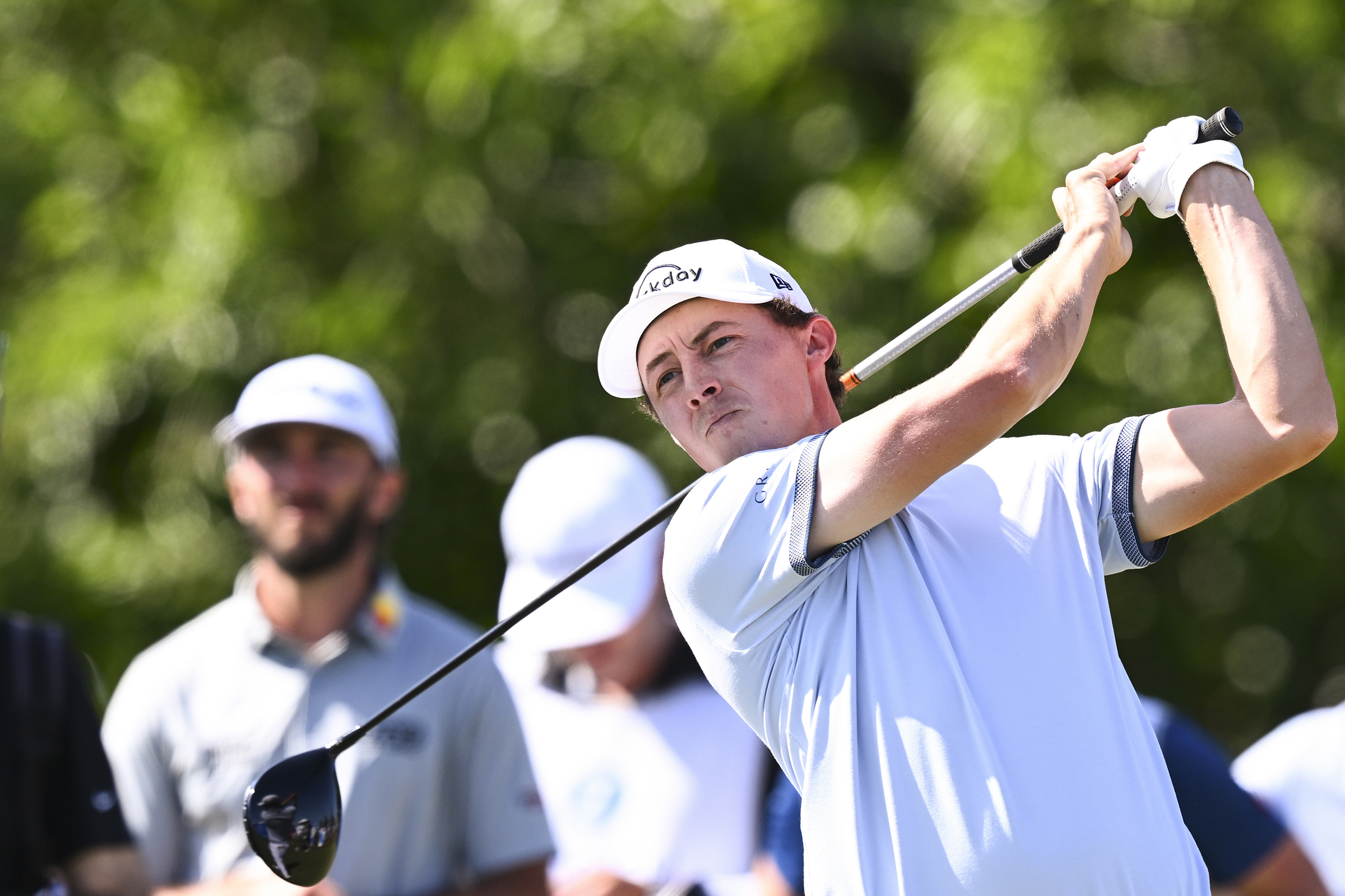Matt Fitzpatrick, the emergent golfer who will defend his 2022 U.S. Open title at the Los Angeles Country Club in mid-June, leaned on a neat mental trick at this year’s Masters. Fitzpatrick, 28, hadn’t fared well at Augusta in previous starts: since 2016, he’s finished, on average, in 27th place. So he recalibrated his expectations. “Anything better than that, I’ve got to take the positives from it,” says Fitzpatrick. “I felt like that kept me grounded throughout the week.” Fitzpatrick finished tied for 10th, his best in seven years. A week later, he won the PGA event in Hilton Head Island, S.C. Following his early-spring roll, Fitzpatrick rose to sixth in the World Golf Rankings, tops for his career.
As golf seeks out players to carry the sport into the post–Tiger Woods era, Fitzpatrick is making his play. He’s taken an intensely analytical approach to improving his game, incorporating sports science—Fitzpatrick closely monitors his sleep—video breakdowns of his swing, and other stats to gain an edge. “We’ve done a lot of work with that,” says Fitzpatrick, “just to find those small 1% gains. I’m always pushing to be better.”

Fitzpatrick grew up in Sheffield, England, spending summers on putting greens instead of at parties with his friends. As a rail-thin 18-year-old, he became the first English player in 102 years to win the U.S. Amateur championship. Fitzpatrick turned professional in 2014, after playing a handful of tournaments for Northwestern University.
He’s kept close ties to home, acting as a fundraising ambassador for the Sheffield Children’s Hospital and donating $80,000 to help pay for a new CT scanner there. He’s also donated to U.K. charities that research neurological disorders and offer countryside holidays for patients suffering from Parkinson’s, MS, and other conditions. “I do think it’s important to give back,” Fitzpatrick says.
If Fitzpatrick triumphs in Los Angeles, he’ll join Curtis Strange and Brooks Koepka as the only men’s golfers to win back-to-back U.S. Opens since 1989. Playing conditions, as usual at the U.S. Open, are certain to be difficult. “I don’t feel like any holes give you a breather,” he says. “The fairways are tight, the greens are firm, the roughs high. It’s mentally fatiguing, as well as physically.” Not to worry. Fitzpatrick’s proved to be good at staying grounded. And being a force to reckon with in golf.
- The 100 Most Influential People of 2024
- The Revolution of Yulia Navalnaya
- 6 Compliments That Land Every Time
- What's the Deal With the Bitcoin Halving?
- If You're Dating Right Now, You're Brave: Column
- The AI That Could Heal a Divided Internet
- Fallout Is a Brilliant Model for the Future of Video Game Adaptations
- Want Weekly Recs on What to Watch, Read, and More? Sign Up for Worth Your Time